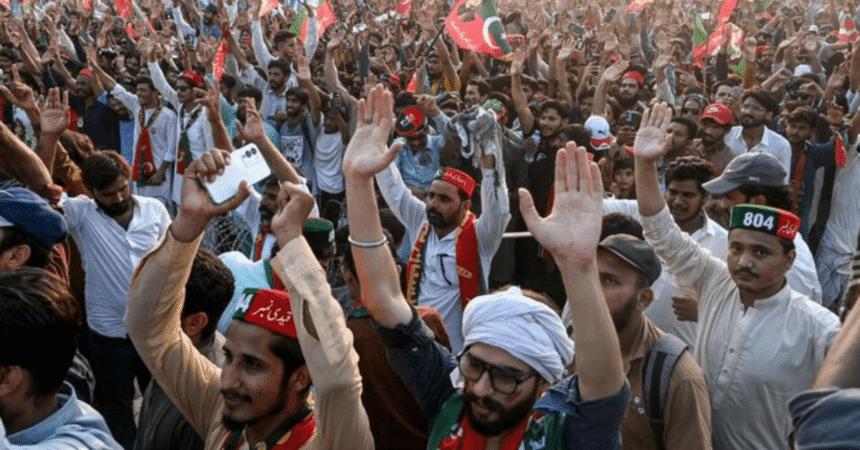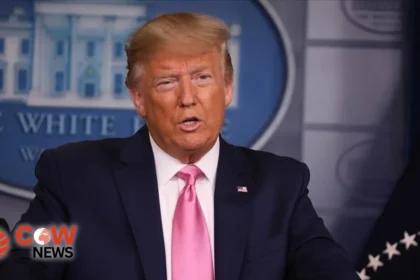In a response to the Pakistan Tehreek-e-Insaf (PTI) party’s call for protests across multiple cities in Punjab, the government has enacted stringent security measures, including the imposition of Section 144, leading to widespread restrictions on public gatherings and significant arrests of party workers and leaders.
Overview of the Protests
The PTI protests have emerged as a direct reaction to the detention of several party leaders, with demands for their immediate release taking center stage. Mobilizing its supporters, the PTI has called for demonstrations in various cities, including Mianwali, Bahawalpur, and Faisalabad. In anticipation of potential unrest, the government has taken decisive action to preemptively curb public demonstrations.
Government’s Response
Imposition of Section 144
To maintain law and order, the Punjab government has imposed Section 144 in several districts for a two-day period, effectively banning public gatherings and protests. This legal measure aims to mitigate any potential violence and unrest stemming from the planned demonstrations.
The regions affected include Bahawalpur, Sahiwal, and Sargodha. Law enforcement agencies have been mobilized to enforce the restrictions rigorously, with the deployment of police forces at key locations.
Sealing of Major Routes
In Bahawalpur, the government has sealed off all major entry and exit points, strategically placing containers to block highways and restrict movement. Key locations such as Qutubpur Toll Plaza, Mewati in Dunyapur, and the Empress Bridge, which connects Lodhran to Bahawalpur, have been fortified with checkposts.
This sealing off of routes has effectively cut off access to the city, creating logistical challenges for residents and raising concerns about the impact on everyday life.
Mianwali’s Isolation
Mianwali has faced particularly harsh measures, with all entry and exit points being sealed. The local administration has also suspended mobile phone services to disrupt communications among protestors, although internet access remains available through Wi-Fi and DSL services. This tactic aims to diminish the organization and coordination of protests, reflecting a significant escalation in the government’s response.
Increased Security in Faisalabad
Faisalabad has also witnessed a significant security buildup, with the motorway interchange sealed and police deployed at all city entry points. Ordinary citizens face restrictions, and convoys associated with the PTI have been banned from the area. The shutdown of all eight major markets in Faisalabad, reinforced with barbed wire, further illustrates the government’s determination to prevent any form of public dissent.
Arrests and Detentions
In a sweeping crackdown, police have arrested over 200 PTI activists in Faisalabad, including two Members of the Provincial Assembly (MPAs), Ismail Seela and Hasan Niazi, as well as the brother of party leader Sahibzada Hamid Raza. These arrests were made ahead of a planned PTI protest at Chowk Ghant Ghar, signaling the government’s zero-tolerance policy towards the demonstrations.
The detainment of these political figures has escalated tensions between the PTI and the government, with party supporters expressing outrage over the perceived heavy-handedness of law enforcement. Such actions have drawn criticism from various quarters, raising concerns about the right to peaceful assembly in Pakistan.
Legal Challenges to Government Actions
In light of the government’s aggressive measures, a petition has been filed in the Lahore High Court challenging the implementation of Section 144 across Punjab. The petition, lodged by a citizen named Najiullah, argues that the Constitution of Pakistan guarantees the right to peaceful protest, and that the imposition of Section 144 is primarily aimed at suppressing the PTI’s political activities.
Petition Details
The petitioner has requested the court to declare the notification of Section 144 null and void, contending that it infringes upon the constitutional rights of citizens. This legal challenge underscores the ongoing debate about civil liberties in Pakistan, particularly in the context of political dissent and government response to opposition movements.
Public Sentiment and Political Repercussions
The crackdown on PTI protests has sparked a mix of reactions from the public and political analysts. Many PTI supporters feel aggrieved by the government’s actions, viewing them as an infringement on their rights to assemble and voice their grievances. Conversely, government officials argue that the measures are necessary to maintain public order and safety.
Public Outcry
On social media, the sentiment among PTI supporters has been one of anger and frustration. Many have taken to platforms like Twitter and Facebook to express their discontent with the government’s tactics, using hashtags to organize and rally support for the detained leaders. The situation has created a charged atmosphere in Punjab, with fears of escalating protests as citizens respond to the government’s heavy-handed approach.
Potential for Further Protests
As the situation develops, the potential for further protests looms large. PTI leaders have signaled their intent to continue demonstrating until their demands are met, and the government’s crackdown may inadvertently galvanize support for the party. The prospect of escalating unrest raises questions about the stability of the political environment in Punjab and across Pakistan.
Implications for Governance and Civil Liberties
The government’s actions have broader implications for governance and civil liberties in Pakistan. The use of Section 144 to suppress dissent raises concerns about the balance between maintaining public order and upholding democratic rights.
Impact on Political Landscape
The crackdown on PTI protests may reshape the political landscape in Punjab, influencing voter sentiments and party dynamics. Political analysts suggest that heavy-handed tactics may lead to a backlash against the ruling party, potentially galvanizing support for the PTI in upcoming elections.
Human Rights Concerns
International human rights organizations have expressed alarm at the government’s approach to dissent. The suppression of peaceful protests and the arrest of political figures may attract scrutiny from global watchdogs, potentially impacting Pakistan’s international standing.
A Turning Point for PTI and Punjab Politics
The unfolding situation in Punjab reflects a critical juncture in Pakistan’s political landscape. The PTI protests, met with stringent government measures, signify a struggle for civil liberties and political expression.
As both sides navigate this contentious environment, the implications for governance, public sentiment, and political accountability will be significant. The outcome of the ongoing protests and the government’s response will shape the future of political discourse in Punjab and potentially across the entire country.
#PTIProtests #PunjabPolitics #CivilLiberties #Section144 #PoliticalDissent #PakistanNews #PublicOrder #HumanRights







